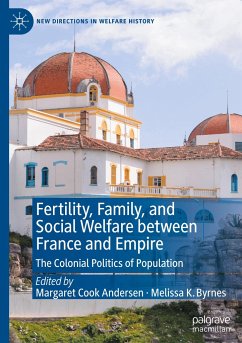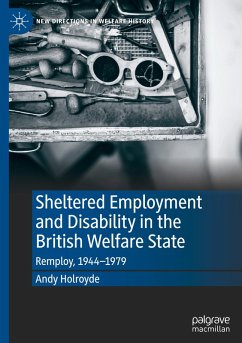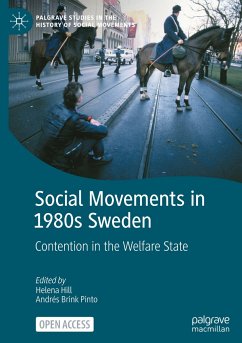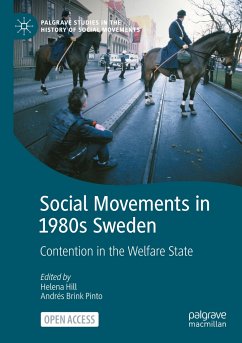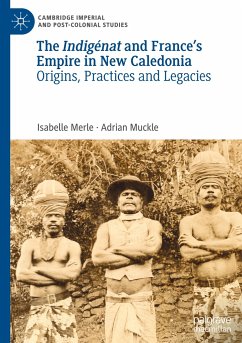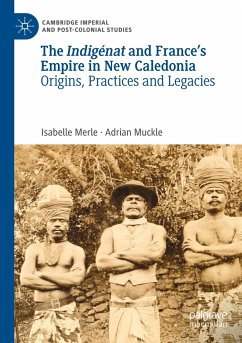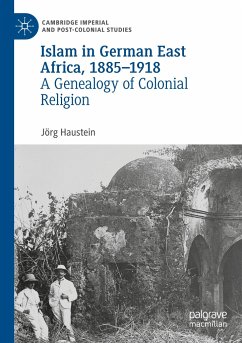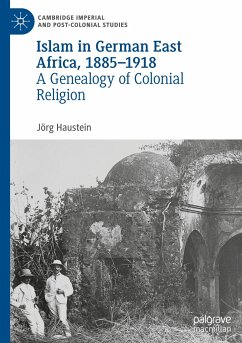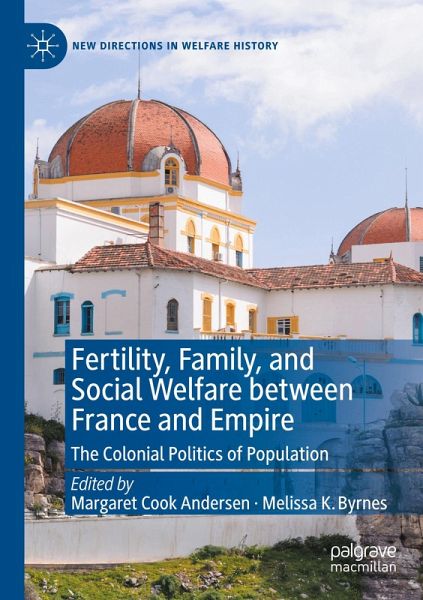
Fertility, Family, and Social Welfare between France and Empire
The Colonial Politics of Population
Herausgegeben: Andersen, Margaret Cook; Byrnes, Melissa K.
Versandkostenfrei!
Versandfertig in 6-10 Tagen
106,99 €
inkl. MwSt.

PAYBACK Punkte
53 °P sammeln!
This edited volume focuses on social welfare and medicine within the French Empire and brings together important currents in both imperial history and the history of medicine. The book covers a broad period from the 'first colonial empires' that existed prior to 1830, the 'new imperialism' of the late nineteenth and early twentieth centuries, the process of decolonisation in the mid-twentieth century, and the 'afterlives' of colonial regimes in France and newly-independent states. Building on recent scholarship, this volume examines the extension of imperialism into the post-colonial period. T...
This edited volume focuses on social welfare and medicine within the French Empire and brings together important currents in both imperial history and the history of medicine. The book covers a broad period from the 'first colonial empires' that existed prior to 1830, the 'new imperialism' of the late nineteenth and early twentieth centuries, the process of decolonisation in the mid-twentieth century, and the 'afterlives' of colonial regimes in France and newly-independent states. Building on recent scholarship, this volume examines the extension of imperialism into the post-colonial period. The chapters examine a range of topics developing our understanding of the reasons why colonial states saw the family as a site for biopolitical intervention. The authors argue that experts built a racialised body of knowledge about colonial populations through census data and medical understandings of problems such as child mortality and infertility. They show that by analysing and compilingdataon fertility, population growth (or decline), and health, this fuelled interventions designed to ensure a stable workforce, and that protecting children and mothers, vaccinating vulnerable populations, and creating modern, sanitary housing were all initiatives also aimed at serving larger goals of preserving colonial rule. Finally, the book shows that social welfare projects during the French Empire reflected concerns about race, differential fertility, and migration that continued well after decolonisation.



